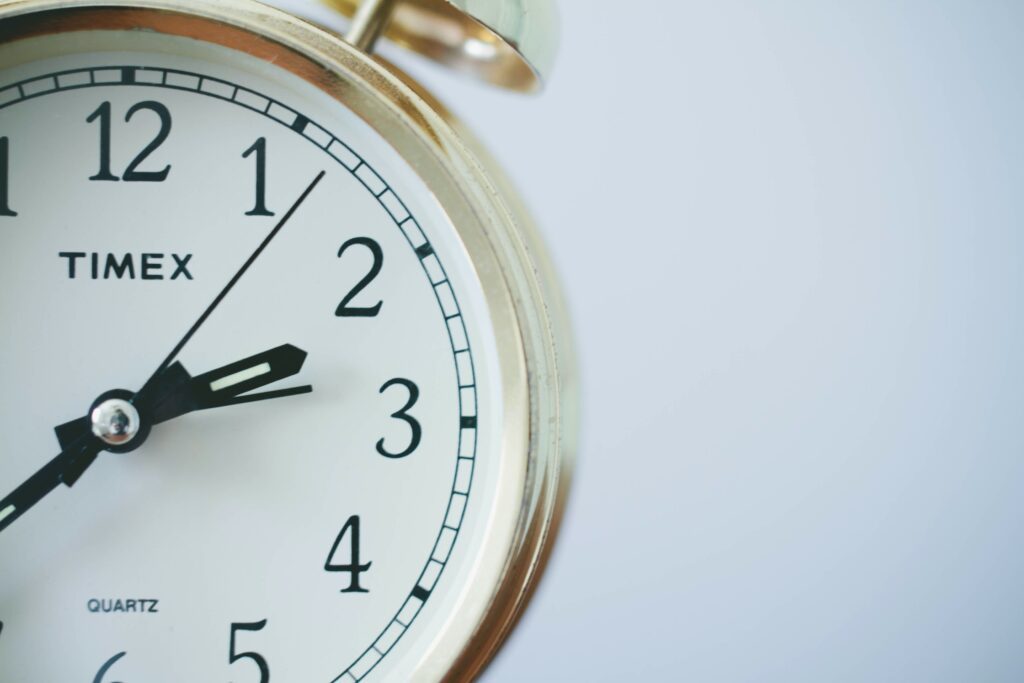Virginia should abolish daylight savings time, making standard time permanent
4 min read
Virginia should switch to standard time permanently to benefit our sleep, health and heart. | Sonja Langford, Unsplash.com
KRANSTON BLAKEY
Staff Writer
So many of us look forward to fall; it’s the season of pumpkins, changing leaves, comfy clothes and tamer weather. But the dreaded end of daylight savings time—and the 5 p.m. darkness that comes with it—ruins the season and does more harm than good.
Daylight savings is the practice of moving clocks forward an hour during the spring so darkness falls at a later time, then moving the clocks back an hour in the fall to resume standard time. Standard time is the local time for a country or region when daylight savings time is not in use, also referred to as the winter time or normal time. Because the practice of switching from daylight savings to standard time is outdated and negatively impacts our health, the state of Virginia should keep standard time all year.
According to an article by the Washington Post, “daylight saving time does not save evening light at all, it simply steals it from the morning when it is necessary to maintain our biological rhythms.”
Phyllis Zee, chief of sleep medicine at Northwestern University’s Feinberg School of Medicine, has also spoken against daylight savings time.
“While no time system will be perfect for everyone, making daylight saving time permanent would lead to a greater number of dark mornings than we have now,” said Zee.
In the U.S., Arizona does not practice daylight savings due to their weather. If they were to practice daylight savings, the sun would stay out until 9 p.m. in the summer. With the intense heat, that would bring extreme discomfort to the state’s residents. Hawaii also does not participate in the changing of the clocks. Because they are so close to the equator, sunrise and sunset times don’t change much.
We can look to Arizona and Hawaii as examples of why daylight savings is not a necessary practice for every state, further underscoring that Virginia would benefit from having a consistent clock time year-round. Having permanent standard time instead of daylight savings time as the new norm would benefit our health and safety.
According to an article by Reader’s Digest, if we as a state collectively stopped practicing daylight savings, people could have better sleep, reduced risk of heart issues, reduced risk of strokes, cost savings, fewer auto accidents, religious dilemmas and changing crime rates.
Daylight savings disrupts circadian rhythms, which are internal cycles in the body that regulate physical, mental and behavioral changes over a 24-hour period. Affected by our exposure to light and darkness, these rhythms play a key role in regulating sleep and wakefulness. Disrupting the rhythms causes you to be less alert and prone to sickness or accidents.
This has led sleep experts to call for the abolishment of the practice.
Dr. Susheel Patil, a clinical associate professor at Case Western University School of Medicine who specializes in sleep medicine believes daylight savings is the root of certain health and safety problems humans face.
In an interview with Raw Story, he said, “The loss of sleep has been shown to result in an increase in car accidents during the week after the change to DST, and there can be an approximately 20 percent increase in patient safety-related incidents associated with human error.”
Among the negative health impacts of daylight savings is the heightening of seasonal depression. In an article published by HealthLine, “A study published in 2017 found that there was an 11 percent increase in depressive episodes during the switch from daylight saving to standard time.”
Some students experience this effect firsthand.
“I do feel the effects of seasonal depression, but I’m not sure if it is tied to daylight savings or the weather change,” said junior communication and digital studies major Maddie Fry. That being said, Fry doesn’t see any use behind the practice. “I definitely think we should stop practicing daylight savings. I feel like presently, daylight savings causes more of an inconvenience and remains pointless,” she said.
Daylight savings originally started as an energy-saving practice, according to NPR. It was first introduced in Germany on April 30, 1916, in an attempt to minimize the use of artificial light to save fuel during war times. Within a few weeks, many other countries followed suit, but most of them reverted back to standard time after WWI, though they began the practice again at the start of WWII.
But in reality, daylight savings time isn’t an effective energy saver.
According to an article by Energy News Room in 2020, “A report by the U.S. Department of Transportation found that DST reduced electricity use by 1 percent but had no impact on home heating.”











